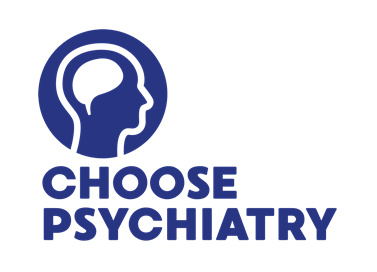Why I love my special interest day
30 October, 2023
This blog post by Dr Gwen Collin is part of the 2023 Choose Psychiatry campaign.
I am a ST5 trainee in General Adult Psychiatry working in West Yorkshire. I became aware of Special Interest Days for higher trainees early in my core psychiatry training and was amazed; I could not believe that I would have a whole day a week to do whatever I wanted with (within reason)!
As I approached higher training I wondered how I would decide what to do with the time as there were so many things I was interested in. A session run a few months before starting higher training was helpful in demonstrating the range of activities that trainees use the time for and gave me ideas of how to go about organising my special interest time.
I used special interest time as a new ST4 to gain experience in clinical subspecialties I had not previously worked in but felt would be useful and relevant to my ongoing training and career.
Getting involved in research
In the second year as a higher trainee, I wanted to focus on research as I had limited experience in this area and was aware of the increased emphasis on research in the new curriculum. I approached the consultant lead for research in the trust where I work to enquire about opportunities. This led to me becoming involved in a trial that was due to open in the trust, as well as taking on a role as a local trainee “research ambassador”.
I am currently working on a multi-site double-blind, randomised placebo-controlled trial called TOPHAT. The trial’s primary aim is to see whether ondansetron is better than placebo at reducing the frequency and/or severity of visual hallucinations for people with Parkinson’s disease and Lewy Body Dementia. It is a really exciting study as if significantly positive outcomes are found for patients with ondansetron this low-cost medication could be available as a treatment in the next few years.
I have been seeing patients as part of the study but also am an associate Principal Investigator (PI) via the NIHR (National Institute for Health and Care Research) scheme. This is a six month in-work training programme which allows practical experience for healthcare professionals who have limited research experience. It has meant I have been able to experience working on, and delivering, a NIHR trial under the mentorship of a local Principle Investigator (the individual responsible for the research study at a particular site).
In my role as a higher trainee research ambassador I have a brief to make trainees more aware of local research, as well as being a link between the trust Research & Development department and psychiatry trainees.
My activities related to this have included: disseminating local research news to trainees, attending an annual trust day where research is showcased, supporting my supervising consultant in running a session about research opportunities at a “preparing for consultant practice”, and organising a teaching session on research for higher trainees as part of the monthly teaching program.
'Learning lots'
I have learned lots so far about research and the interplay with clinical practice, as well as developing my management skills further. I have also found it more enjoyable than I anticipated, and now hope in the future to remain more engaged with research, for example by taking on a PI role as a consultant.
I took a while to work out that psychiatry was the specialty for me but now cannot understand why I ever wanted to do anything else! I feel so privileged to spend my working days hearing people’s stories and trying to support them through some of their most vulnerable times, as well as working closely with fantastic colleagues from different backgrounds and disciplines.
Dr Gwen Collin, ST5 in Liaison Psychiatry
Make a difference – choose psychiatry
Considering a career in psychiatry? Hear from working psychiatrists why they chose psychiatry and how rewarding the job can be.
Or if you've taken a break from work or training, let us show you the wide range of support on offer as you return.


